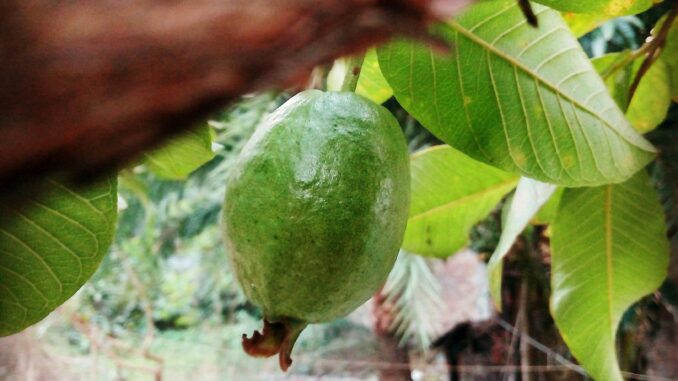
Over the last decade, Afrobeats has evolved from a genre enjoyed mostly in West Africa to one of the most globally recognized sounds in modern music. Today, the world dances to Nigerian hits, international artists collaborate with African stars, and Afrobeats plays in clubs, festivals, and award shows across Europe, America, Asia, and beyond. What started as a local movement has now become a worldwide cultural takeover — and Nigerian artists are at the center of it.
Afrobeats is not just music; it’s a cultural identity. Born from a blend of African rhythms, highlife, dancehall, hip-hop, and pop, the genre represents the energy, vibrancy, and spirit of Africa. Its infectious beats, catchy melodies, and danceable rhythms make it impossible to ignore. As a result, global audiences have fallen in love with the sound, and the world’s biggest artists are paying attention.
A Sound Rooted in Culture
Afrobeats draws heavily from African drums, native languages, and traditional storytelling. Although modern Afrobeats has evolved into a more global sound, its foundation remains deeply African. This authenticity is one reason the genre resonates with people worldwide — it offers something fresh, energetic, and emotionally powerful.
Before Afrobeats went global, Nigeria already had legendary artists such as Fela Kuti, who pioneered Afrobeat (without the “s”), a genre known for political messages and live-band instrumentation. Today’s Afrobeats is different; it’s more pop-focused, dance-driven, and produced for mass appeal — but the cultural heartbeat remains the same.
The Artists Who Opened the Global Door
Several Nigerian artists played a major role in bringing Afrobeats to global recognition. Around the early 2010s, stars like Wizkid, Davido, Burna Boy, Tiwa Savage, and Olamide began releasing hits that crossed beyond Africa.
Wizkid’s collaboration with Drake on “One Dance,” which became one of the most streamed songs in history, introduced millions to Afrobeats. Davido dominated charts with hits like “Fall” and “If,” which broke barriers in the U.S. Burna Boy took African storytelling to another level, earning multiple Grammy nominations and winning the award for Best Global Music Album. Tiwa Savage and Yemi Alade opened international doors for female Afrobeats artists, proving that the industry was big enough for everyone.
These artists didn’t just make hit songs — they opened a global gateway for future stars.
Streaming Platforms Accelerated the Rise
Before streaming, it was difficult for African music to reach listeners outside the continent. But platforms like Spotify, Apple Music, Audiomack, and YouTube changed everything. With a global digital audience, Afrobeats broke geographic barriers.
Songs like “Essence,” “Last Last,” “Love Nwantiti,” “Calm Down,” and “Ku Lo Sa” have become international hits, trending on TikTok, climbing Billboard charts, and earning billions of views and streams.
Streaming made Afrobeats easily accessible, allowing the genre to grow at lightning speed.
Global Collaborations Boosted Visibility
One of the biggest factors in Afrobeats’ global rise is international collaborations. Artists such as Beyoncé, Chris Brown, Drake, Justin Bieber, Ed Sheeran, and Selena Gomez have worked with Nigerian musicians, bringing Afrobeats to massive audiences worldwide.
Beyoncé’s Lion King: The Gift album, featuring Wizkid, Burna Boy, Tiwa Savage, and Mr Eazi, introduced the genre to millions. CKay’s “Love Nwantiti” blew up on TikTok, becoming one of the most internationally remixed African songs ever. Rema’s “Calm Down” remix with Selena Gomez broke global streaming records and topped charts in multiple countries.
Each collaboration added more fans and more global recognition.
Social Media and Dance Culture
Platforms like TikTok and Instagram play a huge role in Afrobeats’ success. The genre is perfect for short videos, dance challenges, and viral content. African creators, dancers, and influencers helped spread the music worldwide, turning songs into global sensations within weeks.
A simple dance challenge can take a song from Lagos to Los Angeles, turning unknown artists into global stars overnight.
Afrobeats Fashion, Lifestyle & Identity
Afrobeats is more than a sound — it is a movement. The rise of the genre brought African fashion, slang, hairstyles, and lifestyle into mainstream culture. Designers, stylists, and photographers now integrate African-inspired looks into global music projects.
The identity of Afrobeats celebrates boldness, energy, and authenticity. It promotes African confidence and pride on a worldwide stage.
Award Shows and International Recognition
Afrobeats stars now dominate international stages. Burna Boy, Wizkid, Davido, and Rema have performed at Coachella, MTV VMAs, BET Awards, and global festivals. The Grammys recently introduced new categories for African music, further proving the genre’s global importance.
Afrobeats is no longer “emerging.” It is firmly part of the global music industry.
The Future of Afrobeats
The future is brighter than ever. New artists like Asake, Ayra Starr, Fireboy DML, Tems, Oxlade, Victony, and BNXN are bringing fresh sounds and styles. Producers like Pheelz, Sarz, Don Jazzy, Rexxie, and London are pushing the boundaries of production quality.
Afrobeats will continue to grow as more African voices reach global platforms. With expanding tours, collaborations, festivals, and streaming power, the genre is on its way to becoming one of the most dominant sounds in modern music.
Conclusion
Afrobeats has become the heartbeat of global pop culture. Its rise is a celebration of African identity, creativity, and power. The world is listening, dancing, and embracing Nigerian music like never before. With its unstoppable momentum, Afrobeats is not just a trend — it is the future of global entertainment.

Leave a Reply